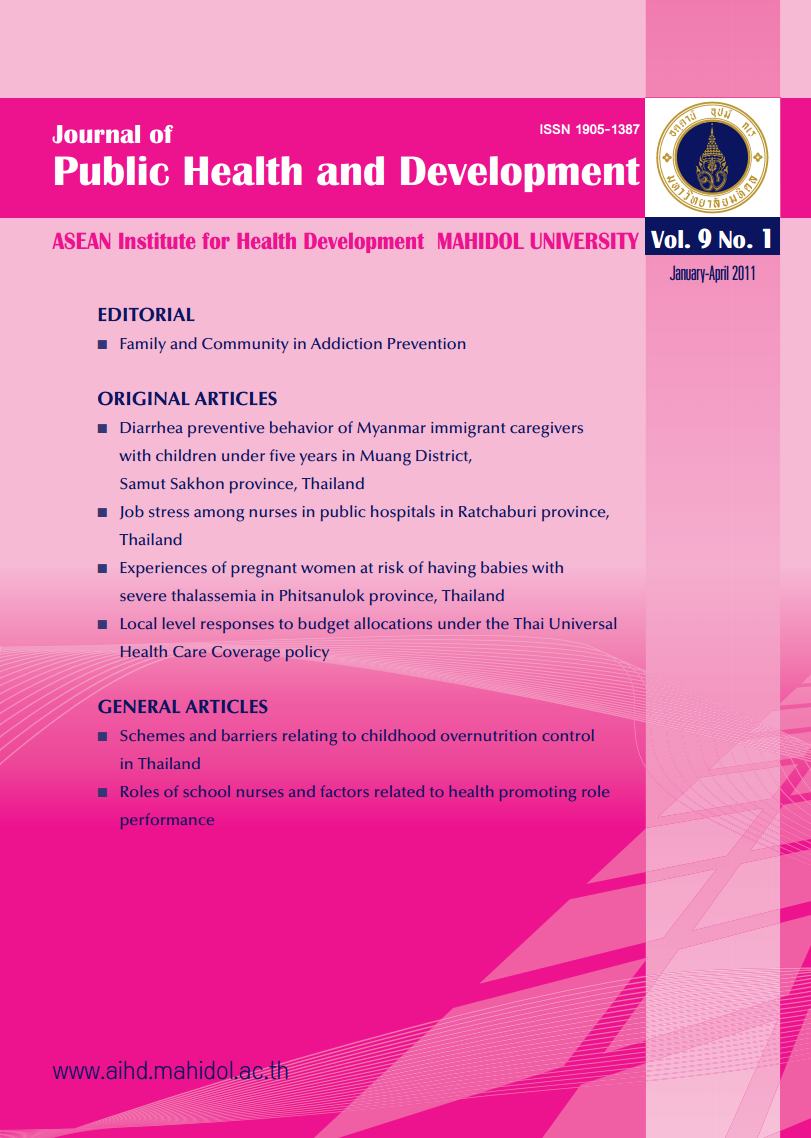Job stress among nurses in public hospitals in Ratchaburi province, Thailand
Main Article Content
Abstract
A cross-sectional descriptive study was conducted to study job stress among nurses in public hospitals in Ratchaburi province, Thailand. The objectives were to describe the prevalence of job stress, the socio-demographic factors, the work characteristics and the social support, as well as to identify the associations between the independent variables and dependent variable. The subjects in this study were 194 nurses and data were collected from January to February, 2010. Descriptive statistics were used to explain the characteristics of the study variables and the chi-square test was used to identify the relationship between dependent and independent variables.
The result showed slightly over a quarter of the respondents (26.2%) were categorized into the high-risk group for job stress. Moreover, job stress was found to be significantly associated with workload, work relationships and social support. More than 70% of the respondents thought that their workloads were heavy. It was also found that heavy workloads caused high stress to nurses. Over 60% of respondents thought their work relationships were good. The nurses who thought that they had good relationships at work had lower job stress. The proportion of the subjects who thought that social support was good and thought it was moderate were almost equal, whereas no one thought their social support was poor. The more support they received, the less job stress they experienced.
This study revealed that appropriate workloads, work relationships and social support can reduce job stress. In order to decrease
job stress, it is recommended that nurses’ workloads, work relationships and social support should be carefully considered and
managed by hospital administrators with a view to reducing job
related stress.


